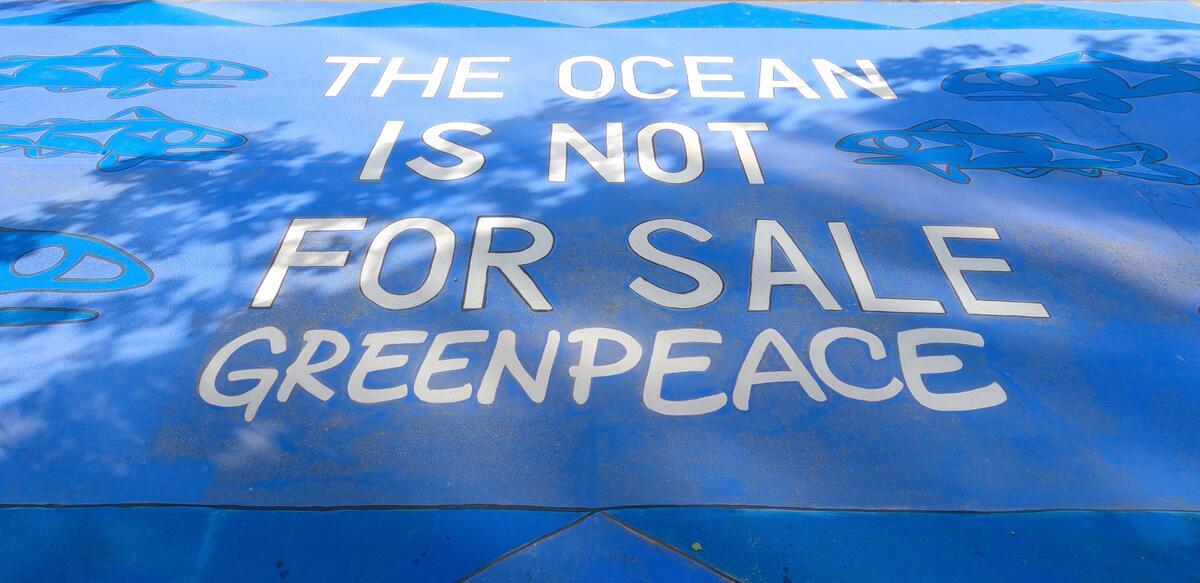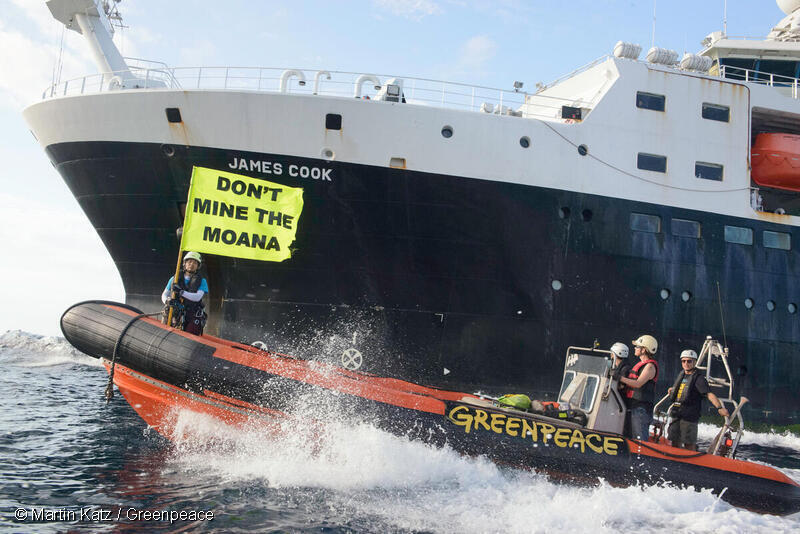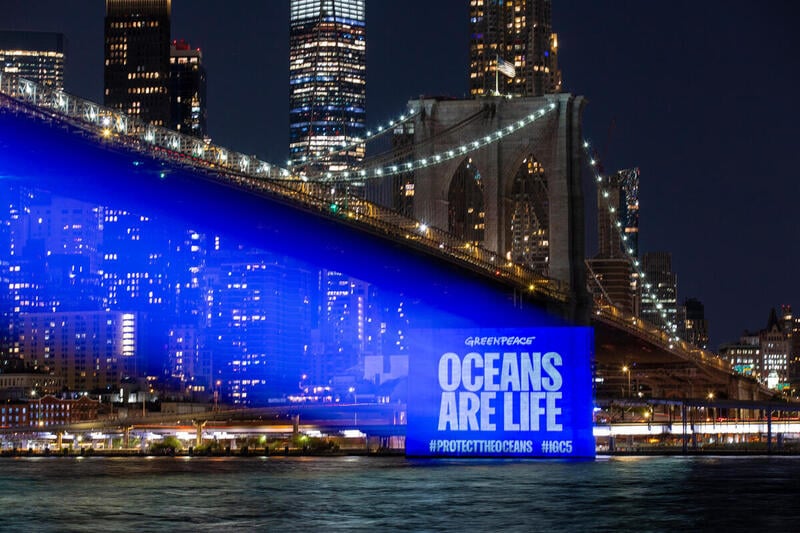New York — The final negotiations for a Global Ocean Treaty begin today and run until Aug. 26 at the United Nations. The outcome of the meeting will determine the fate of the oceans for generations to come. Canada, along with 48 countries, has committed to deliver an ambitious Treaty in 2022. These commitments must now become reality.
Sarah King, head of Greenpeace Canada’s Oceans & Plastics campaign, said:
“Governments have been discussing a Treaty for two decades, while life in the oceans has borne the brunt of the climate crisis and suffered catastrophic losses across food chains and ecosystems. Canada pledged to help secure an ambitious Treaty to protect the oceans; the next two weeks will show if our delegation will lead on that promise. ”
Laura Meller of Greenpeace’s Protect the Oceans campaign said from New York:
“These negotiations are a once-in-a-generation opportunity to protect the blue part of our blue planet. The oceans sustain all life on Earth but for too long, we’ve neglected them. Delegates must finalise a strong Treaty this August. A weak Treaty, or any further delay, will maintain the broken status quo that has pushed the oceans into crisis.”
If a strong Global Ocean Treaty is not finalised in New York it will be virtually impossible to deliver 30×30 — at least 30% of the oceans protected by 2030. Scientists say this is the absolute minimum required to give the oceans space to recover.
To be considered a success, the meeting must deliver a Treaty that:
- Sets as a primary objective the establishment of a global network of Marine Protected Areas.
- Allows states, through a Conference of Parties (COP), to establish ocean sanctuaries, free from destructive activities like fishing and deep sea mining.
- Allows the COP to make decisions by vote when a consensus is not possible.
- Defines Marine Protected Areas (MPAs) to allow for the creation of fully and highly protected areas, which are most cost effective.
- Allows the COP to decide whether activities such as fishing are allowed or prohibited in MPAs, without deferring to existing bodies.
- Allows the COP to adopt interim or emergency measures to protect an area pending the establishment of an MPA.
In the two decades since a Treaty was first discussed, more than a hundred marine species have become critically endangered. Industrial fishing pressure also now covers at least 55% of the global oceans and the climate crisis continues to damage the oceans’ ability to regulate our planet’s climate and temperature.
ENDS
For visuals, see here.
For the media briefing, see here.
Contact:
Brandon Wei, Communications officer, Greenpeace Canada
[email protected], +1 778 772-6138
James Hanson, Global Media Lead, Greenpeace UK
[email protected] / +44 7801 212 994
Follow @greenpeacepress on Twitter for our latest international press releases



